This article was co-authored by Joshua Bloom. Joshua Bloom is a Pest Control Specialist and the Vice President of Operations of Standard Pest Management, a pest control company based in New York City. He has over 20 years of experience in the pest control industry and specializes in commercial and large facility pest control management. Standard Pest Control also specializes in ant, bed bug, cockroach, fly, and rodent control. Joshua is licensed by the NYSDEC (New York State Department of Environmental Conservation) for termite control.
There are 14 references cited in this article, which can be found at the bottom of the page.
wikiHow marks an article as reader-approved once it receives enough positive feedback. In this case, 100% of readers who voted found the article helpful, earning it our reader-approved status.
This article has been viewed 91,632 times.
A career as a pest control specialist offers many benefits, including working independently, interacting with people and working outdoors. Many commercial industries like health care, food service, food processing and others are required by law to maintain pest control standards. The pest control industry is a growing field with many job opportunities, and the requirements to become a pest control specialist vary from state to state.
Steps
Training to Become a Specialist
-
1Obtain a high school diploma or GED. A high school diploma or equivalent is usually required for most pest control jobs.[1] As a pest control specialist, you will need to have good basic skills in math, writing, and chemistry. Knowing the identity and biology of pests is important for this career as well.[2] .
-
2Have a good driving record. Pest control specialists drive to different locations throughout the day. Most companies require their employees to have a good driving record. Avoid getting any driving violations (e.g. speeding tickets, car accidents, parking tickets) and address any violations that you may have on your driving record.
- If you are unsure about your record, order a copy of your driving record from your state Department of Motor Vehicles (DMV).[3] Talk the DMV about ways to improve your record such as taking a driver safety course.
Advertisement -
3Complete a pest control training program. You can receive pest control training through community colleges, technical centers, university extension programs, or pest control training centers. Make sure the school is recognized by your state pesticide regulatory board.Your initial training will be classroom instruction only and will prepare you for an entry-level position as pest control technician.
- During pest control training, you will learn about rodent control, termite control, pesticide use and safety, and fumigation.[4]
- To be a pest control specialist, you really have to understand the science and biology of pests That way, you can inspect a situation and think about the best course of action..[5]
- Training can usually be completed in 3 months or less.[6]
-
4Receive on-the-job training. After you have completed a pest control training program, you will undergo hands-on training through your employer. You will likely work as an apprentice and be supervised by a licensed specialist. After you complete your apprenticeship, you will be eligible to sit for your certification exam.
- Some employers offer both classroom instruction and on-the-job training. You will not need to attend a pest control training program if you get a job at one of these companies. Large companies are more likely to offer this.
- The amount of on-the-job training you need will vary based on the state you plan to work. Check the requirements in your state before you begin training.
-
5Become certified. You must be licensed to work as a pest control specialist. This process often requires candidates to pass written examinations before becoming licensed. Some states require an oral exam, and still others require practical examinations. These tests cover a variety of pest and pesticide knowledge, including the ability to diagnose situations properly and prescribe appropriate pest control solutions.
- Visit the National Pesticide Information Center website to get contact information for your state pesticide regulatory agency.[7]
Working as a Pest Control Specialist
-
1Find a job. Pest control specialist jobs can be found through online job boards, company websites, and through your pest control training school. The National Pest Management Association maintains a list of pest control companies that may be hiring[8] . You can also access their career center as well to look for jobs.[9]
-
2Advance your career. A pest control technician is an entry level position. Once you become certified and have more experience, you can become a pest control applicator. You will have to take another exam to become a certified applicator. After several years of experience as an applicator, you can become a certified supervisor. You will have to pass an exam for this position as well.
- Check with your state regulatory agency to determine the experience and licensing requirements for each level.
-
3Complete continuing education. The pest control management field is constantly changing. Animals become resistant to certain pesticides. Technology in the field changes. Companies are looking for environmentally friendly solutions. Participating in continuing education will keep you up-to-date on all the changes in your field.
- Continuing education is usually required to maintain your certification. Check with your state to determine the requirements.
-
4Know the risks. Working with pesticides is risky because you are being exposed to chemicals on a daily basis. Most pesticides have signal words that let you know how toxic they are. "Caution" indicates lower toxicity products. "Warning" indicates medium toxicity products. "Danger" indicates high toxicity products.[10] While you may not suffer health consequences immediately, long term exposure to pesticides is associated with negative health effects (e.g. cancer, liver problems, reproductive issues).[11] It is important that you take measures to limit your risk as you do your job.
-
5Minimize your exposure. Always read the directions on the label for any pesticides that you use and wear your Personal protective Equipment (PPE). When you get home from work, take your shoes off before you go inside, take a shower, and wash your clothes.[12] If you are ever concerned about your work environment or have questions, call the NPIC at 1-800-858-7378, email npic@ace.orst.edu, or contact your state regulatory agency.[13]
Practicing Integrated Pest Management
-
1Identify the pest. Before you can implement a strategy to get rid of a pest, you have to know exactly what you are dealing with. Are you dealing with roaches, rodents, or some other insect? What type of environments do these pests like to live in? What do the pests like to eat? Are the pests attracted to wood or certain fabrics?[14]
- Integrated Pest Management focuses on preventing and managing pests in the most cost-effective and environmentally safe way. Understanding the type of pest you are dealing with is the foundation for the management plan you will develop.
- Also note the time of year it is, the weather conditions, and the characteristics of the damage that the pest has caused when you are doing your evaluation.[15]
-
2Use non chemical methods to remove the pest. Pesticides are not the only option for dealing with pests. Prevention, cultural controls, physical and mechanical controls, and biological controls are options as well. You will probably have to combine some of these methods to manage the pests.[16]
- Cultural controls are things you can do to prevent pests from entering the area. These include watering and fertilizing plants[17] , using pest resistant plants, and having good sanitation habits.
- Physical and mechanical controls include using barriers, using heat treatments, and knocking pests off of plants by spraying water. For instance, if a home is having a rodent problem, you might inspect the roof, windows, and doorways for any small entry points the rodents could be using to get in.[18]
- Biological controls include using insecticides that kill the target but not other beneficial insects and utilizing natural enemies of the target pest. A natural enemy is another organism that kills or eats the target pest.[19]
-
3Try pesticides. If non-chemical methods do not work, use pesticides to take care of the pest. Choose the most effective, yet least toxic pesticide.[20] Only treat the area where the pest has been found. By knowing the life cycle of the pest, you can administer the pesticide when the pest is most vulnerable.
- To treat a large infestation, like an ant problem, try using a bait that the insects can carry back to their nest.[21]
- You can combine pesticide treatments with some of the other non-chemical methods.
- Once you have gotten rid of the pests, continue using non-chemical ways to prevent the pests from coming back.
Expert Q&A
-
QuestionWhat should you know before you become a pest control specialist?
 Joshua BloomJoshua Bloom is a Pest Control Specialist and the Vice President of Operations of Standard Pest Management, a pest control company based in New York City. He has over 20 years of experience in the pest control industry and specializes in commercial and large facility pest control management. Standard Pest Control also specializes in ant, bed bug, cockroach, fly, and rodent control. Joshua is licensed by the NYSDEC (New York State Department of Environmental Conservation) for termite control.
Joshua BloomJoshua Bloom is a Pest Control Specialist and the Vice President of Operations of Standard Pest Management, a pest control company based in New York City. He has over 20 years of experience in the pest control industry and specializes in commercial and large facility pest control management. Standard Pest Control also specializes in ant, bed bug, cockroach, fly, and rodent control. Joshua is licensed by the NYSDEC (New York State Department of Environmental Conservation) for termite control.
Pest Control Specialist It's important to understand the science and biology of pests before you can remove them. Always inspect a property carefully, then think out the best course before you take action.
It's important to understand the science and biology of pests before you can remove them. Always inspect a property carefully, then think out the best course before you take action.
References
- ↑ http://www.bls.gov/ooh/building-and-grounds-cleaning/pest-control-workers.htm#tab-4
- ↑ http://www.bls.gov/ooh/building-and-grounds-cleaning/pest-control-workers.htm#tab-2
- ↑ http://www.dmv.org/articles/driving-record-point-removal-keep-your-license-in-good-standing/
- ↑ http://www.bls.gov/ooh/building-and-grounds-cleaning/pest-control-workers.htm#tab-4
- ↑ Joshua Bloom. Pest Control Specialist. Personal interview. 8 May 2020.
- ↑ http://www.bls.gov/ooh/building-and-grounds-cleaning/pest-control-workers.htm#tab-4
- ↑ http://npic.orst.edu/reg/state_agencies.html
- ↑ http://www.pestworld.org/find-a-pest-control-professional/
- ↑ http://careers.npmapestworld.org/
- ↑ http://npic.orst.edu/health/risk.html
- ↑ http://en.hesperian.org/hhg/A_Community_Guide_to_Environmental_Health:Long-term_Health_Effects_of_Pesticides
- ↑ http://npic.orst.edu/health/minwork.html
- ↑ http://npic.orst.edu/health/minwork.html
- ↑ http://www.ipm.ucdavis.edu/GENERAL/whatisipmurban.html
- ↑ http://pesticidestewardship.org/homeowner/Pages/UnderstandingPestManagement.aspx
- ↑ http://extension.psu.edu/plants/gardening/fact-sheets/factsheets/pest-management-methods
- ↑ http://pesticidestewardship.org/homeowner/Pages/UnderstandingPestManagement.aspx
- ↑ Joshua Bloom. Pest Control Specialist. Personal interview. 8 May 2020.
- ↑ http://www.ipm.ucdavis.edu/PMG/NE/index.html
- ↑ http://www.ipm.ucdavis.edu/GENERAL/whatisipmurban.html
- ↑ Joshua Bloom. Pest Control Specialist. Personal interview. 8 May 2020.
About This Article
Being a pest control specialist means working independently, interacting with a variety of people, and spending a lot of time outdoors. Before you start tackling the specific requirements, you'll need to make sure that you have a high school diploma or GED and a good driving record. Once you have these two prerequisites, complete a pest control training program through a local community college, technical center, university extension program, or pest control training center. Training can typically be completed in 3 months or less. After you finish your formal training, get on-the-job training through your employer. You’ll likely work as an apprentice and be supervised by a licensed specialist during this time. Once you finish this program, you can take your certification exam. While some states only require a written exam to become certified, others require an oral exam or a practical exam, so make sure to check your state’s guidelines. To learn how to find a job as a pest control specialist, keep reading!
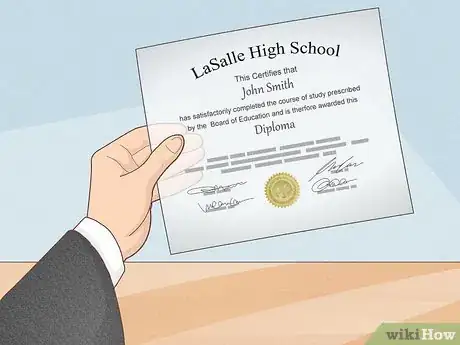



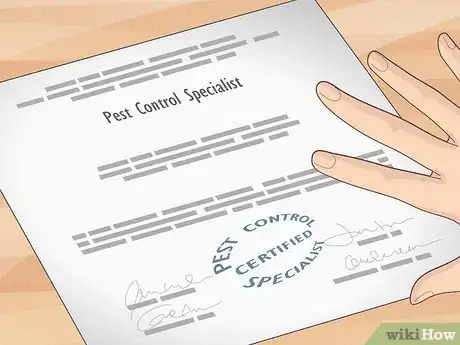


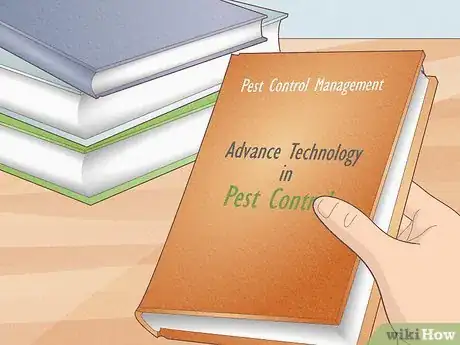
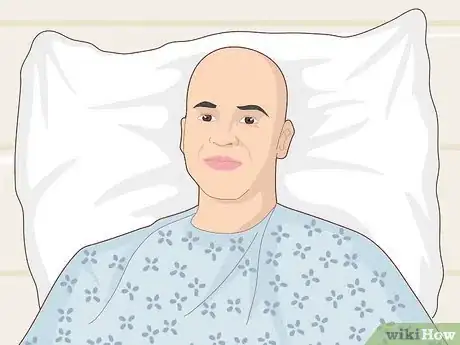
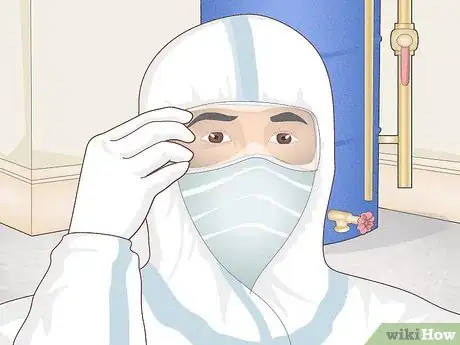




-Step-9.webp)
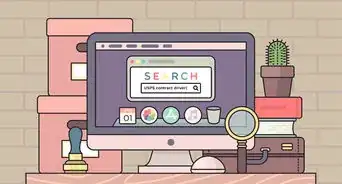







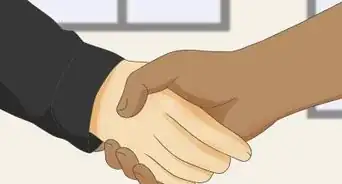
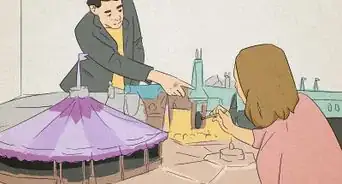













-Step-9.webp)




































